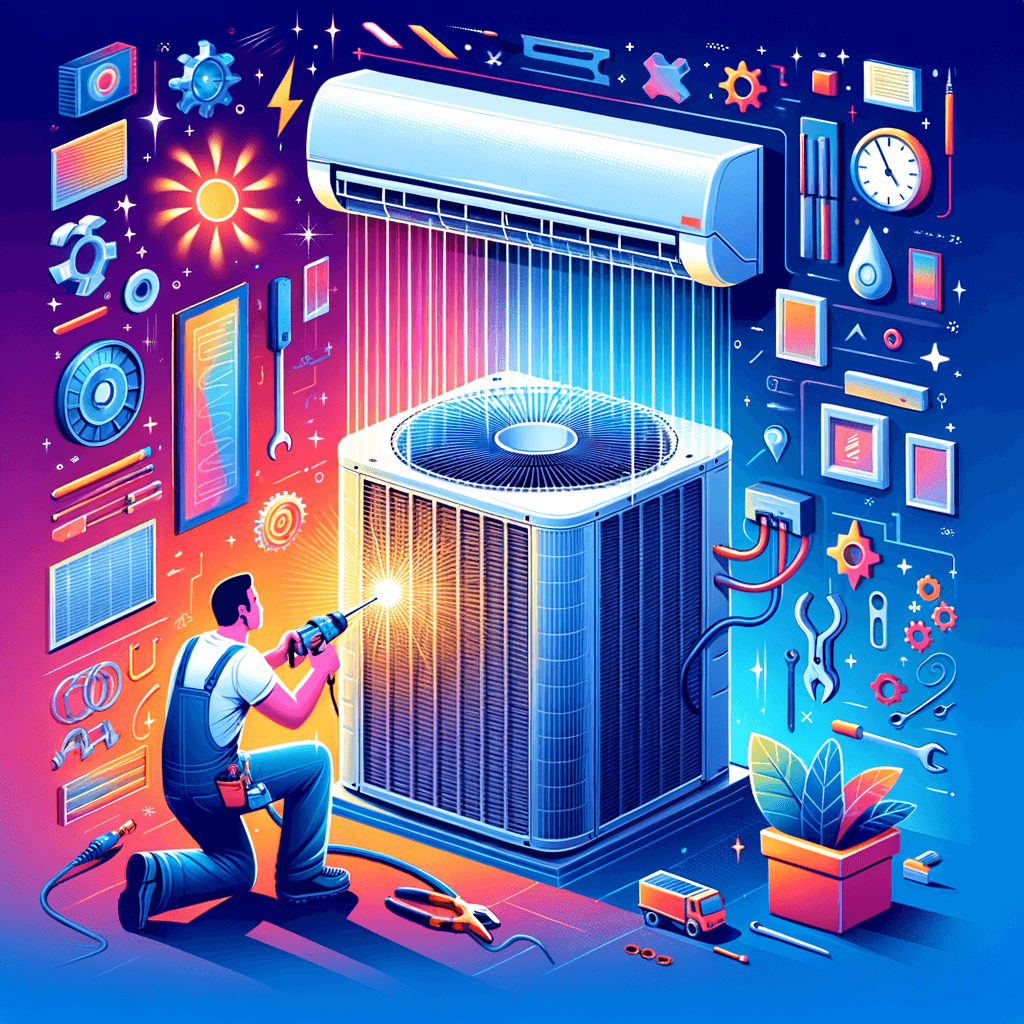
Optimizing Air Conditioner Coils: Maintenance, Efficiency, and Longevity
By Total Care Air Conditioning Thu Oct 30 20257 minutes

Understanding the Critical Role of Air Conditioner Coils
Air conditioner coils—specifically the evaporator and condenser coils—are integral to the heat exchange process that enables effective cooling. Over time, these coils accumulate dirt, debris, and even microbial growth, which can drastically impede system efficiency and lead to premature component failure. Homeowners and facility managers often overlook coil care, yet it is a pivotal factor in ensuring optimal air conditioning performance and energy savings.“A clean coil is the unsung hero behind every efficient air conditioning system.”
Types of Air Conditioner Coils and Their Functions
To appreciate the importance of coil optimization, it’s essential to distinguish between the two primary coil types and their unique roles in the cooling cycle.- Evaporator Coil: Located inside the air handler, this coil absorbs heat from indoor air, allowing refrigerant to evaporate and cool the space.
- Condenser Coil: Found in the outdoor unit, this coil releases absorbed heat to the exterior environment, condensing the refrigerant back into a liquid.
| Coil Type | Location | Function |
| Evaporator | Indoor Unit | Absorbs indoor heat |
| Condenser | Outdoor Unit | Releases heat outdoors |
The Hidden Costs of Neglected Coils
Failing to maintain air conditioner coils leads to more than just reduced cooling capacity. The accumulation of contaminants forces the system to work harder, increasing energy consumption, operational costs, and the risk of breakdowns. Dirty coils can also foster mold growth, compromising indoor air quality and occupant health.Advanced Coil Maintenance Techniques for Homeowners and Professionals
Routine coil cleaning and inspection are crucial for maintaining system efficiency and longevity. Beyond basic dusting, specialized techniques and products can yield superior results, ensuring coils remain free from obstructions and corrosion.- Use of fin combs to straighten bent coil fins for optimal airflow.
- Application of non-acidic coil cleaners to remove biofilm and mineral deposits.
- Periodic coil inspection for refrigerant leaks and corrosion spots.
- Scheduled professional deep cleaning for heavily contaminated coils.
“Preventive coil maintenance pays dividends in both energy savings and system reliability.”
Energy Efficiency Gains from Optimized Coils
Well-maintained coils directly contribute to lower energy bills and a reduced carbon footprint. Clean coils allow refrigerant to flow efficiently, maximizing heat transfer and minimizing compressor strain. This translates into measurable performance improvements and extended equipment lifespan.| Maintenance Frequency | Potential Energy Savings |
| Quarterly | Up to 16% |
| Bi-Annually | Up to 10% |
| Annually | Up to 5% |
Common Myths About Coil Maintenance Debunked
Many misconceptions surround coil care, leading users to adopt ineffective or even damaging practices. Dispelling these myths is essential for making informed maintenance decisions.- Coils only need cleaning when visibly dirty—False: Even thin layers of dust can impede performance.
- DIY cleaning with household detergents is sufficient—False: Improper products can damage coil materials.
- Professional maintenance is unnecessary—False: Technicians have specialized tools and expertise.
Signs Your Air Conditioner Coils Need Attention
Recognizing early warning signs of coil issues can prevent costly repairs and system downtime. These indicators often manifest subtly before escalating into major problems.- Reduced cooling output despite normal thermostat settings.
- Unusual noises or vibrations from the indoor or outdoor unit.
- Visible frost or ice accumulation on coils.
- Increased humidity levels indoors.
- Spike in energy bills without increased usage.
Frequently Asked Questions About Coil Optimization
Uncertainty about coil care is common among both homeowners and facility managers. Addressing frequently asked questions can demystify the process and empower users to take proactive action.- How often should coils be cleaned for optimal performance?
- Can neglected coils void my air conditioner’s warranty?
- What are the safest cleaning agents for coil maintenance?
- Is it possible to clean coils without disassembling the unit?
- How does coil care affect indoor air quality?
Future Innovations: Self-Cleaning and Antimicrobial Coils
Emerging technologies in coil design are set to revolutionize maintenance routines. Self-cleaning coatings and antimicrobial treatments are being integrated into modern systems, reducing manual intervention and enhancing long-term hygiene. These advancements promise to further improve efficiency and user convenience.“The future of coil technology lies in automation and materials science, delivering cleaner air and lower operating costs.”